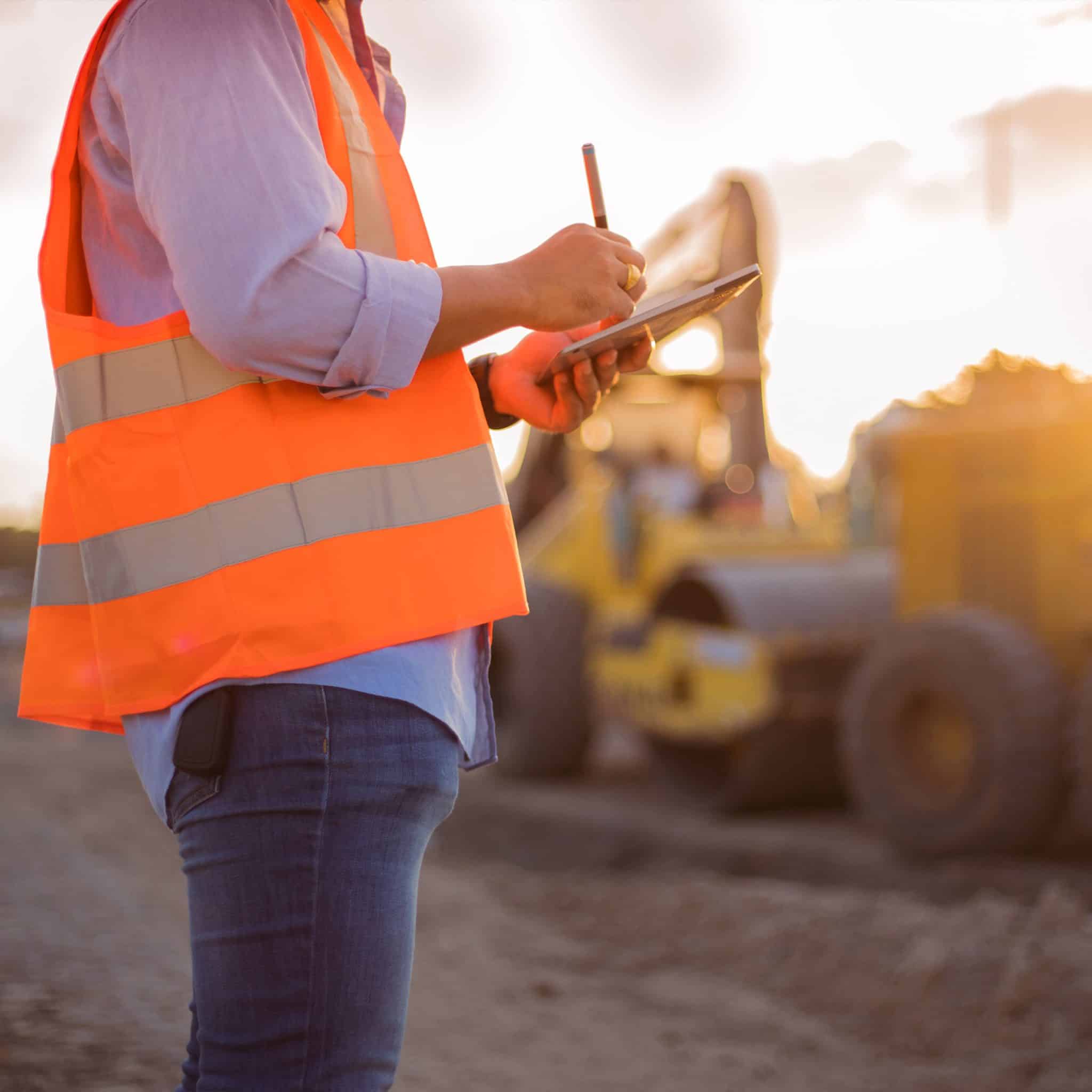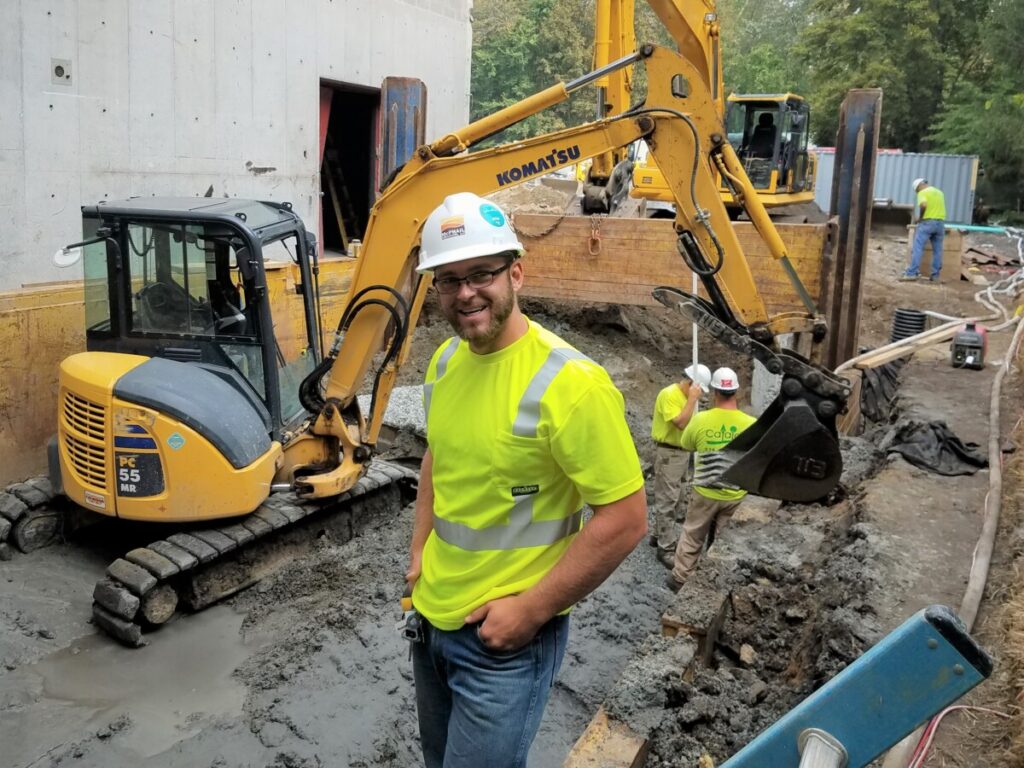Why Working With a Geo Tech Engineer is Vital for Complicated Building Projects
Why Working With a Geo Tech Engineer is Vital for Complicated Building Projects
Blog Article
Comprehending the Important Duty of the Geotechnical Sector in Modern Building Projects and Infrastructure Growth
The geotechnical industry is a cornerstone of modern building and infrastructure advancement, supplying critical understandings into soil habits that straight affect project end results. Via sophisticated soil evaluations and ingenious design services, geotechnical specialists not just guarantee structural integrity but also address sustainability issues amid evolving environmental criteria. As framework demands grow and brand-new obstacles arise, the value of this field becomes increasingly evident. What effects might these growths have for future projects and the total safety and security of our developed atmosphere?
Importance of Dirt Assessment
Dirt analysis plays an important duty in the geotechnical industry, functioning as the structure for informed decision-making in building and construction jobs. Accurate soil evaluation is important for figuring out the suitability of a site for various kinds of frameworks, consisting of residential homes, commercial structures, and bridges. By evaluating soil composition, wetness, density, and toughness content, engineers can anticipate prospective difficulties and minimize risks related to ground instability, disintegration, and settlement.
The evaluation procedure usually involves a series of examinations and monitorings that offer crucial details regarding the subsurface problems. This information educates the layout and construction procedures, guaranteeing that frameworks are improved strong ground with adequate support. Moreover, understanding the soil profile enables designers to choose appropriate construction approaches and materials, optimizing source usage and minimizing prices.
In addition to making certain structural integrity, dirt evaluation adds to environmental sustainability. By recognizing possible contamination or adverse effects on surrounding communities, engineers can apply approaches to safeguard these natural deposits. In general, comprehensive soil evaluation is crucial in the geotechnical field, underpinning the security, efficiency, and ecological duty of construction tasks.
Key Geotechnical Methods
A range of vital geotechnical methods are utilized to examine and enhance the security and efficiency of building and construction websites. One fundamental approach is soil tasting and testing, which allows designers to identify the physical and chemical buildings of the ground. This info is essential for making notified decisions regarding structure layout and construction methods.
Another necessary strategy is website characterization, which entails the comprehensive analysis of soil and rock problems via techniques such as borehole drilling and in-situ screening. Techniques like Standard Infiltration Examinations (SPT) and Cone Penetration Tests (CPT) supply important data on dirt toughness and stratigraphy.
Ground improvement strategies, such as soil stablizing and grouting, are also vital in enhancing the load-bearing capability of weak soils. These techniques can alleviate negotiation and improve total website problems.
Additionally, incline stability analysis is crucial for identifying possible landslide dangers and guaranteeing the security of excavations. This analysis often utilizes mathematical modeling and limitation balance techniques to predict soil behavior under various problems.
Incorporating these geotechnical strategies into building and construction preparation not only optimizes task end results however also ensures the long-term sustainability of facilities advancement.
Effect On Construction Safety

Furthermore, efficient geotechnical engineering includes implementing reduction strategies for determined risks. This might include dirt stablizing techniques, preserving frameworks, or water drainage systems to relieve hydrostatic pressure. By addressing these elements, building groups can minimize the likelihood of mishaps and enhance employee safety and security.
Furthermore, constant surveillance of website problems is crucial during construction. Geotechnical instruments can provide real-time information relating to ground motion and security, enabling prompt treatments when necessary.
In essence, the geotechnical industry plays an essential function in safeguarding building tasks. By prioritizing ground honesty and employing rigorous analysis approaches, the geotechnical field not only safeguards the labor force however additionally contributes to the longevity and reliability of built infrastructure.
Sustainability in Geotechnical Practices

Additionally, geotechnical designers are currently employing innovative innovations, such as geosynthetics, which enhance dirt security while decreasing the volume of product required. This not just preserves sources but additionally results in less waste generation (geo tech engineer). The combination of lasting layout principles into geotechnical design motivates the use of renewable resource resources in construction processes, further decreasing carbon exhausts
Additionally, comprehensive site assessments are vital for recognizing possible environmental effects before building starts. By conducting these evaluations, geotechnical professionals can develop approaches that alleviate negative effects, making certain conformity with environmental policies. In general, the focus on sustainability within geotechnical methods not just contributes to the long life and durability of facilities look at this site however also promotes a responsible technique to land and source monitoring. This dedication is essential for promoting lasting growth in the contemporary building landscape.
Future Trends in Geotechnical Engineering
Technology is driving the future of geotechnical engineering, as emerging modern technologies and methodologies improve the market. The combination of advanced data analytics and fabricated intelligence is readied to transform site examination and risk assessment, enabling engineers to make even more enlightened decisions based upon real-time information. The use of geosynthetic products is getting grip, supplying lasting options that improve dirt stability and decrease ecological effect - consulting engineer.
One more substantial fad is the fostering of automated and robotic systems for surveillance and building processes. These modern technologies not just enhance accuracy yet also boost safety by lessening human participation in harmful environments. Furthermore, the application of Building Information Modeling (BIM) in geotechnical style facilitates improved cooperation among stakeholders, enhancing project delivery and lowering costs.
As environment change presents new obstacles, the sector is significantly concentrating on durability and adaptability in style methods, ensuring infrastructure can withstand extreme climate occasions. Finally, the ongoing trend towards sustainability will drive development in green products and methods, straightening geotechnical engineering with more comprehensive ecological objectives. Collectively, these trends will form a more efficient, sustainable, and resilient geotechnical landscape for future projects.
Final Thought

The geotechnical market is a cornerstone of modern-day building and construction and framework development, offering critical insights right into dirt habits that straight affect job end results. geo tech engineer.Soil evaluation plays an essential duty in the geotechnical sector, serving as the foundation for notified decision-making in building and construction tasks. Overall, detailed soil assessment is vital in the geotechnical area, underpinning the safety, efficiency, and environmental duty of construction projects
Construction security is considerably influenced by geotechnical practices, as the security and stability go to this web-site of the ground straight affect the general safety of a building and construction site.In conclusion, the geotechnical market is essential in modern-day building and framework advancement, giving important evaluations that make sure architectural honesty and safety.
Report this page